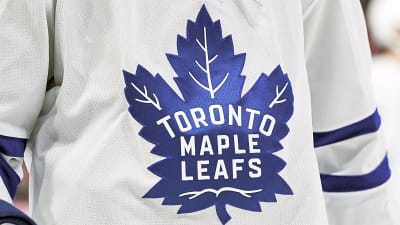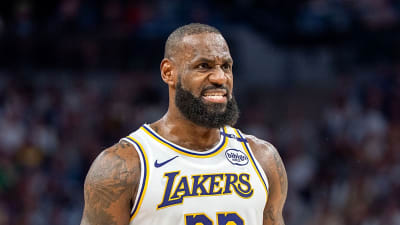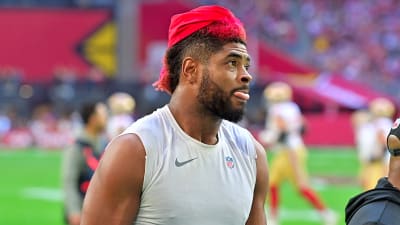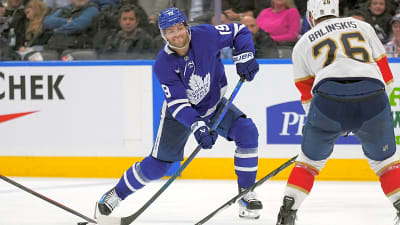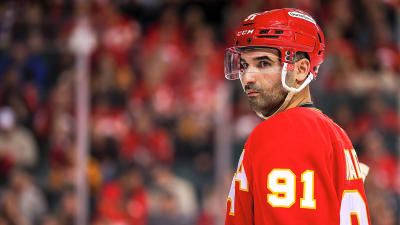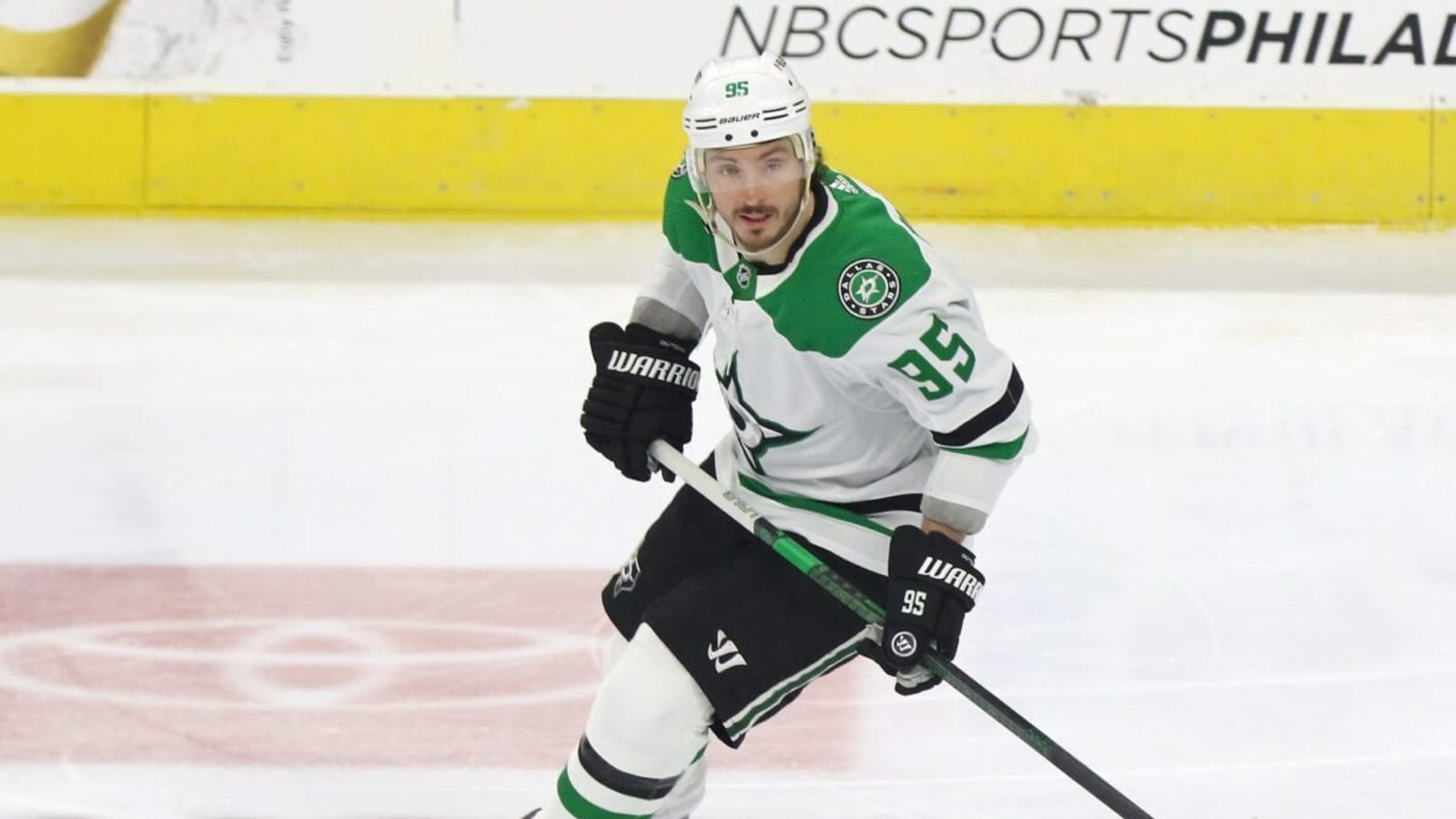
The dust has settled on what was a relatively underwhelming NHL free-agent class. There are still a few stragglers who could sign for cheap, especially the longer they stay unsigned, but all of the top names have found new homes. With that, let’s review some of the best contracts signed in free agency so far.
Jonathan Drouin
The New York Islanders have had an interesting offseason. It began by trading Noah Dobson to the Montreal Canadiens, then drafting Matthew Schaefer, Victor Eklund and Kashawn Aitcheson in the first round of the 2025 draft. They were relatively quiet in free agency, though they did sign Jonathan Drouin to a two-year contract worth just $4 million annually.
Drouin played in just 43 games this season due to injury, but did produce at a 71-point pace. He was one of the Colorado Avalanche’s most efficient five-on-five scorers, and seemed to resurrect his career in his two seasons with the Avalanche. Time will tell if his uptick in production was due to Nathan MacKinnon, but even if it is, the Islanders should get proper value.
Even if Drouin regresses to being a 40-50 point player, which is possible since the Islanders don’t have a ton of offensive firepower, he’ll still be worth a $4 million cap hit. Considering he was one of the better top-six wingers available in free agency, the Islanders got him at a cheaper-than-expected cap hit.
Will Cuylle
Perhaps it’s because there was the threat of an offer sheet, but the New York Rangers moved swiftly to sign Will Cuylle to a two-year bridge deal worth $3.9 million per year. He was one of the few bright spots in an otherwise disappointing season for the Rangers, totaling 20 goals and 45 points in 82 games.
Cuylle is a physical player with some shooting ability and finishing touch. He skates relatively well for someone 6-foot-3, 210 pounds and has some more untapped potential that the Rangers could get out of him in the coming seasons. An apt comparison for him could be Matthews Knies lite, and if he becomes a 25-goal, 50-plus-point player for the Rangers across his two-year bridge deal, they’ll repeat the benefits of having one of the better contracts on their books.
Matt Duchene
The term of Matt Duchene’s new contract with the Dallas Stars might be slightly concerning, but you can’t ignore how valuable his $4.5 million cap hit will be for the next four years. Duchene is not showing any signs of slowing down, as he finished with 30 goals and 82 points in 82 games this past season, and many of his underlying metrics suggest he can maintain it for the foreseeable future.
Duchene was one of the best playmakers in the NHL this season and one of the Stars’ most efficient five-on-five scorers, averaging 2.55 points per 60 minutes. His defensive game has fallen off some, but he can still drive play and remains a decent skater. He may not continue being an 82-point player moving forward, but it’s hard to argue he’ll be worth less than $4.5 million a year unless he falls off a cliff and suddenly can’t crack more than 40 points a season.
Pius Suter
Pius Suter was due for a pay raise after totaling 25 goals and 46 points with the Vancouver Canucks this season, but I’m still surprised he signed for the number he did. Looking for some center depth, the St. Louis Blues announced they had inked Suter to a two-year deal worth $4 million annually. Given what he produced this season, the Blues likely got him a bit under market value.
But while the Blues did get Suter for less than many of his contract projections, there are some concerns. His 2024-25 season was easily a career year, and he’s a prime candidate to regress in 2025-26 after shooting 18.1 percent this season.
Still, even though he’s due to regress, I’d be on Suter at least living up to a $4 million cap hit. He has great hockey sense and is one of the best defensive forwards in the NHL. Even if he returns to being a 35-40-point player, it’ll be hard to argue the Blues didn’t find value in signing him.
Evgeny Dadonov
Looking to bolster their bottom-six scoring depth after it was non-existent in 2024-25, the New Jersey Devils announced they had signed Evgeny Dadonov to a one-year deal worth just $1 million, though there are performance bonuses that could lead to Dadonov earning more. Still, that’s pretty good value for someone coming off a 20-goal and 40-point season.
Dadonov is still a good skater and has some five-on-five scoring upside. He averaged 0.8 goals per 60 at five-on-five this past season, which would have ranked in the top five on the Devils’ roster. He was among the skaters I had as potential value buys in free agency this year, and the Devils took advantage to get a much-needed scoring upgrade for their bottom six.
John Tavares
There’s taking a hometown discount, and there’s taking a HOMETOWN discount. John Tavares grew up in Toronto and a Maple Leafs fan. It’s why he originally signed with the team seven years ago, and it’s why he re-signed for four years at a discounted cap hit of $4.38 million to remain with the Maple Leafs.
Make no mistake. Tavares could have gotten around $7-8 million had he tested the open market. He finished with 38 goals and 74 points in 75 games this season and would have been the best center available since Duchene re-signed with the Stars. Instead, he chose to stay home, and who can blame him, since the Maple Leafs are one of the better teams in the NHL.
The Maple Leafs will get plenty of value in having Tavares locked up at $4.38 million per year for the next four years, even if he doesn’t maintain near-40-goal and 75-point paces. It was arguably the best contract signed this summer after Duchene’s, and it’s not a coincidence that both agreed to similar deals.
Brent Burns
It’ll be weird seeing Brent Burns in a different sweater than the Carolina Hurricanes, but the Avalanche may have gotten one of the better value deals of the summer. Like Dadonov, Burns signed a one-year, $1 million contract heavy on performance bonuses. He showed signs of slowing down this season but still finished with 29 points in 82 games, and most of his underlying metrics were solid:
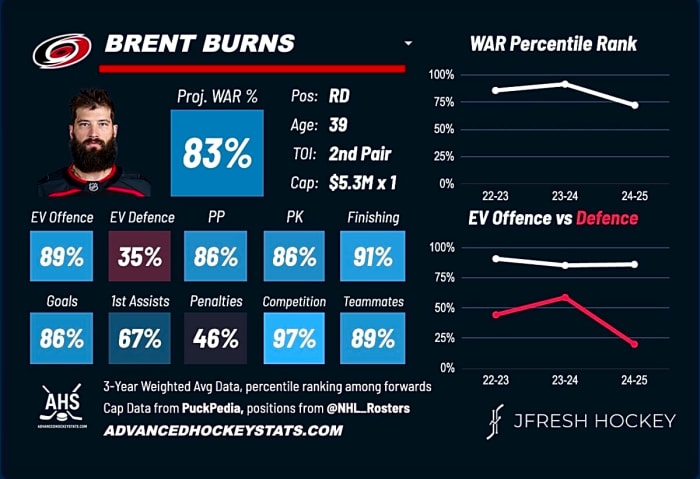
Burns’ defensive impacts may have fallen off this past season, but he was playing difficult top-pair minutes alongside Jaccob Slavin. That likely won’t be the case with the Avalanche, as Cale Makar will handle the tough defensive assignments, leaving Burns to play second- or third-pair minutes. That should benefit him for where he is in his career, and could make him a great fit for the Avalanche at a base salary of $1 million.
Ryan McLeod
Ryan McLeod had a breakout year with the Buffalo Sabres, totaling 20 goals and 53 points in 79 games. And while I don’t expect him to shoot 20.6 percent again next season, especially since he’s not a volume shooter, the Sabres getting him locked up at $5 million annually for the next four years could prove to be great value in a rising cap era.
Even if McLeod regresses to being a 10-15 goal scorer and 35-40 point player, he’s one of the better third-line centers in the NHL. He might not shoot the puck much, but he’s an excellent playmaker and defender. He also excels on the penalty kill and in the faceoff dot.
The Sabres have plenty of issues to address, but signing McLeod at the number they did was tidy business from GM Kevyn Adams. If the salary cap ceiling makes it to $115-120 million in the next couple of years, McLeod’s $5 million cap hit will be closer to $3.5 million. He should be well worth the price.
NHL Teams Seem to Have Learned
UFAs like Victor Olofsson and Jack Roslovic could be good value buys the longer they remain unsigned, but they aren’t likely to be among the best contracts signed in free agency. It’s hard to argue against Tavares and Duchene’s contracts being the best signed this summer, and it shows how NHL teams have gotten smarter since those two were expected to be among some of the more onerous deals signed this offseason.
Advanced stats from Natural Stat Trick
More must-reads:
- Alex Ovechkin provides update on extension talks with Capitals
- Ducks sign starting goaltender to a new five-year deal
- The 'NBA yearly field goals-per-game leader' quiz
Breaking News
Trending News
Customize Your Newsletter
 +
+
Get the latest news and rumors, customized to your favorite sports and teams. Emailed daily. Always free!

